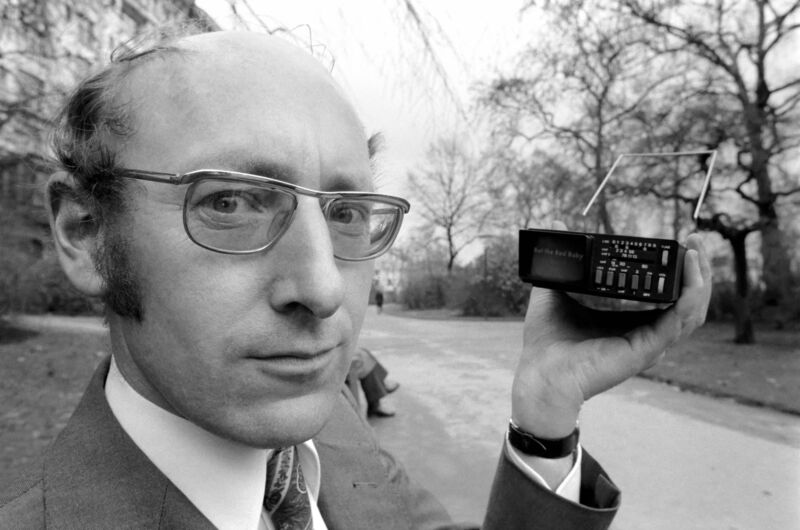
Enlarge / Sir Clive Sinclair holding the world’s smallest television screen when it was created by Sinclair Radionics in 1977. (credit: Getty Images)
Sir Clive Sinclair, the namesake of a British electronics manufacturer who helped pioneer Europe’s microcomputing boom, is dead at the age of 81.
His company, Sinclair Radionics, is arguably best known around the world for 1982’s ZX Spectrum, an early example of a computer capable of multi-color, real-time graphics. The device dominated the UK and other European territories in the early 1980s. This computer was a major processing step up from black-and-white Sinclair computers like ZX80 and ZX81, and it debuted in a configuration priced as low as £125. American readers probably best know this platform thanks to popular and ambitious ZX Spectrum games from the little developer Ultimate: Play The Game. That company eventually rebranded itself as Rareware and turned into a ’90s powerhouse on Nintendo consoles.
Yet before his name became interminably linked to gaming history, Sinclair’s rise to running his own electronics manufacturing company largely resembles the stories of American electronics pioneers who began as garage hobbyists. A BBC documentary, Clive Sinclair: The Pace Setters, chronicles the inventor’s rise, which began with him selling one-at-a-time radio kits via mail order in the 1960s.
